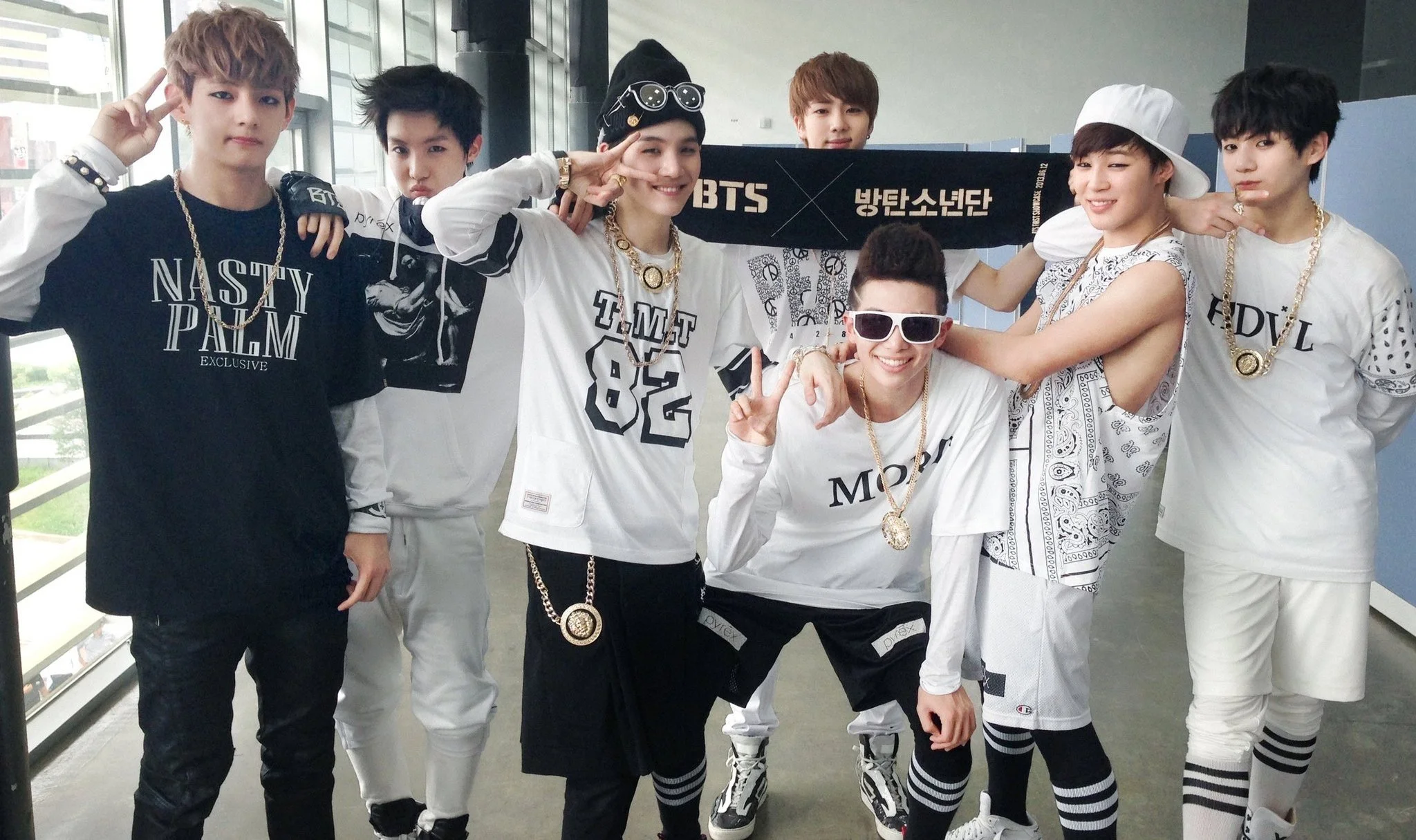Kpop's Complex Relationship with Black Culture and Exploitation
With African genres, such as Afrobeats and Amapiano, rising in global fame, it’s natural for artists to draw inspiration from them. Many K-pop groups have hopped on the trend, and while some fans appreciate this new direction in K-pop, others criticize it as cultural appropriation and exploitation of black culture. This has sparked questions about whether K-pop is finding inspiration from these genres or if it’s simply imitating them.
Following Tyla’s viral song "Water," fans noticed that some K-pop groups started releasing music with a similar sound. One instance was with Le Sserafim, signed under the entertainment company Hybe, who released ‘Smart’. The song’s production and choreography resembled "Water". The main issue listeners had with the song was the group’s pronunciation of “smarter”. Many noted that the way the members dropped the 'er' and replaced it with an “uh" sound seemed to mimic a South African accent.
This isn’t the first Hybe group influenced by African genres. Tomorrow x Together, or TXT, released the track “Tinnitus” in 2023, which fans believe was influenced by highlife, a genre originating from Ghana. Additionally, the group released an Afrobeats remix of their famous track “Back for More” featuring Brazilian singer Anitta. However, fans did not express as much concern with TXT, largely due to them crediting their influences.
Unlike TXT, the group Seventeen faced controversy over their release of an afrobeat-influenced song. Their song “Spell” upset quite a few listeners who were vocal in expressing concerns about the distinction between influence and plagiarism. Everything from the production to the dance was heavily influenced by West African culture. Between Seventeen and Le Sserafim, discussions took place on social media about K-pop's tendency to adopt current trends from black culture.
African culture hasn’t just influenced the sound of K-pop. Groups like Kiss of Life and NCT have released major hits that incorporate African dances into their choreography. Fans observed that NCT’s “fact check” incorporated West African footwork into their choreography. Kiss of Life’s “Sticky” sparked debate among viewers who claimed the choreography not only featured Bacardi, a South African dance but was almost an exact copy of “Water”’s choreography that became a viral trend.
However, while the incorporation of African genres in K-pop is fairly new, black culture has long been a foundational influence. Everything from their production, music videos, styling, lyrics, and even how some idols are trained is thanks to black culture. Most groups have designated rappers, so during their training periods, these members are taught to have certain flows and be able to “rap”.
The heavily hip-hop-based and widely popular group Blackpink has faced many controversies, ranging from misusing AAVE with lyrics like “You gon' finna catch me” to certain members wearing box braids. And they aren’t alone. The global sensation BTS also debuted as a hip-hop-based group, and in their first couple of music videos, the members wore gold chains, snapbacks, and a 4C curled perm worn by one member.
All the groups mentioned are some of the biggest K-pop groups, revealing their appropriation of black cultures is working in their favor. Many groups profit off black culture while simultaneously spewing anti-black comments and refusing to acknowledge the culture they're influenced by.
Exo, one of SM Entertainment’s most successful groups, is known to make RNB music. But despite owing their success to black genres, many of their members have made anti-black comments, such as making jokes about kunta kinte.
Perhaps this wouldn’t be an issue if groups admitted to being influenced, but that isn’t the case here. Idols are known to refuse to give credit where it is due. The group Gidle posted a video brainstorming song ideas, where the main rapper, Soyeon, suggested including African instruments in a song and said she would like to name it “ethnic hip”.
Fans are just as likely to refuse acknowledgment of cultural appropriation. They tend to speak over black audiences who find the appropriation harmful and are known to torment those they disagree with by spewing racist slurs and comments.
So while this isn’t the case for all K-pop, it is common for groups to exploit black culture. African genres are certainly not the first, nor will they be the last, black genre plagiarized. But whether acknowledged or not, K-pop would be nowhere without black people.


